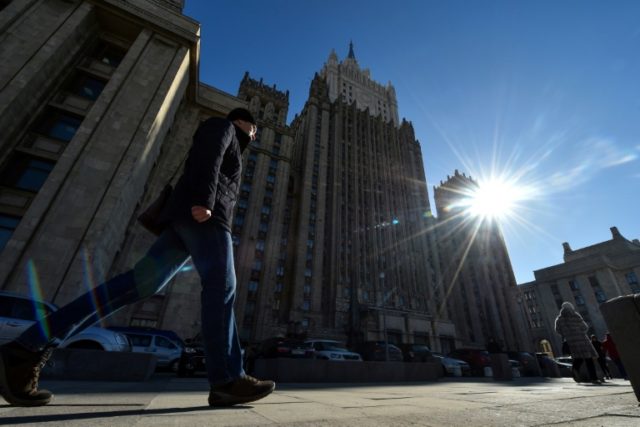London (AFP) – Moscow is facing a “global wave of revulsion” in response to the nerve agent attack on a former Russian spy, Britain’s Foreign Secretary Boris Johnson said.
His intervention came after British counter-terror police on Wednesday said Sergei Skripal and his daughter first came into contact with a nerve agent at their home address in Britain — with the highest concentration on the front door.
The March 4 attack on the Skripals in the English city of Salisbury has been met with a major response that has seen more than 150 Russian diplomats expelled from countries around the world.
British authorities have blamed Moscow, which denies any involvement, and said a Soviet-designed nerve agent dubbed Novichok was used in the poisoning.
“The Kremlin underestimated the strength of global feeling,” Johnson said at a speech late Wednesday in London.
“These expulsions represent a moment when a feeling has suddenly crystallised.
“When years of vexation and provocation have worn the collective patience to breaking point, and when across the world — across three continents — there are countries who are willing to say enough is enough.”
British police said around 250 counter-terrorism detectives are working on the case, which could continue for months.
Around 500 witnesses have been identified and police are looking through more than 5,000 hours of security camera footage.
– Nerve agent traces –
“We believe the Skripals first came into contact with the nerve agent from their front door,” said Dean Haydon, Britain’s counter-terror police chief.
“Traces of the nerve agent have been found at some of the other scenes detectives have been working at over the past few weeks, but at lower concentrations to that found at the home address.”
Investigators had sealed off the bench where the Skripals were found, a pub and restaurant the pair visited, and the grave of the former spy’s wife.
The Daily Telegraph newspaper said Thursday the disclosure would “intensify the manhunt for the would-be assassins” and “heap further pressure on the Kremlin” for putting at risk anyone who visited the house.
The BBC’s security correspondent Gordon Corera said the highest concentration was found on the Skripals’ door handle and could have been administered through a “gloopy substance which could have been smeared on”.
It would explain why the nerve agent may have been found on the Skripals’ car or the restaurant in which they had eaten, he added.
Haydon said the risk to the general public was low.
The Skripals remain in a coma in hospital, while a police officer who responded to the attack was discharged last week.
International experts from the Organisation for the Prohibition of Chemical Weapons arrived in Salisbury on March 20 to verify Britain’s findings.
– Russia blames Britain –
Russia’s foreign ministry on Wednesday said Britain’s handling of the attack “suggests a possible involvement of the UK intelligence services”, accusing London of a campaign against Moscow.
Britain has been backed by NATO along with the United States, 18 European Union nations and other countries in expelling Russian diplomats over the attack.
Moscow has already ordered 23 British diplomats to leave Russia in response to the same move by London, and is expected to take further retaliatory measures against other countries.
British Prime Minister Theresa May and German Chancellor Angela Merkel spoke by telephone on Wednesday and “agreed on the need to continue to work together to counter increased Russian aggression”, May’s Downing Street office said.
Meanwhile more than £880 million ($1.25 billion, one billion euros) of British property claimed to have been bought by Russians with suspect money is to be investigated by a parliamentary inquiry.
The Treasury Select Committee said it will probe the scale of economic crime in Britain following claims the country — in particular the London property market — has become the “destination of choice” to launder money.
It follows recent figures from the Transparency International group estimating that £4.4 billion worth of British properties may have been bought with suspicious wealth — with more than a fifth, or £880 million — of these purchased by Russians.

COMMENTS
Please let us know if you're having issues with commenting.